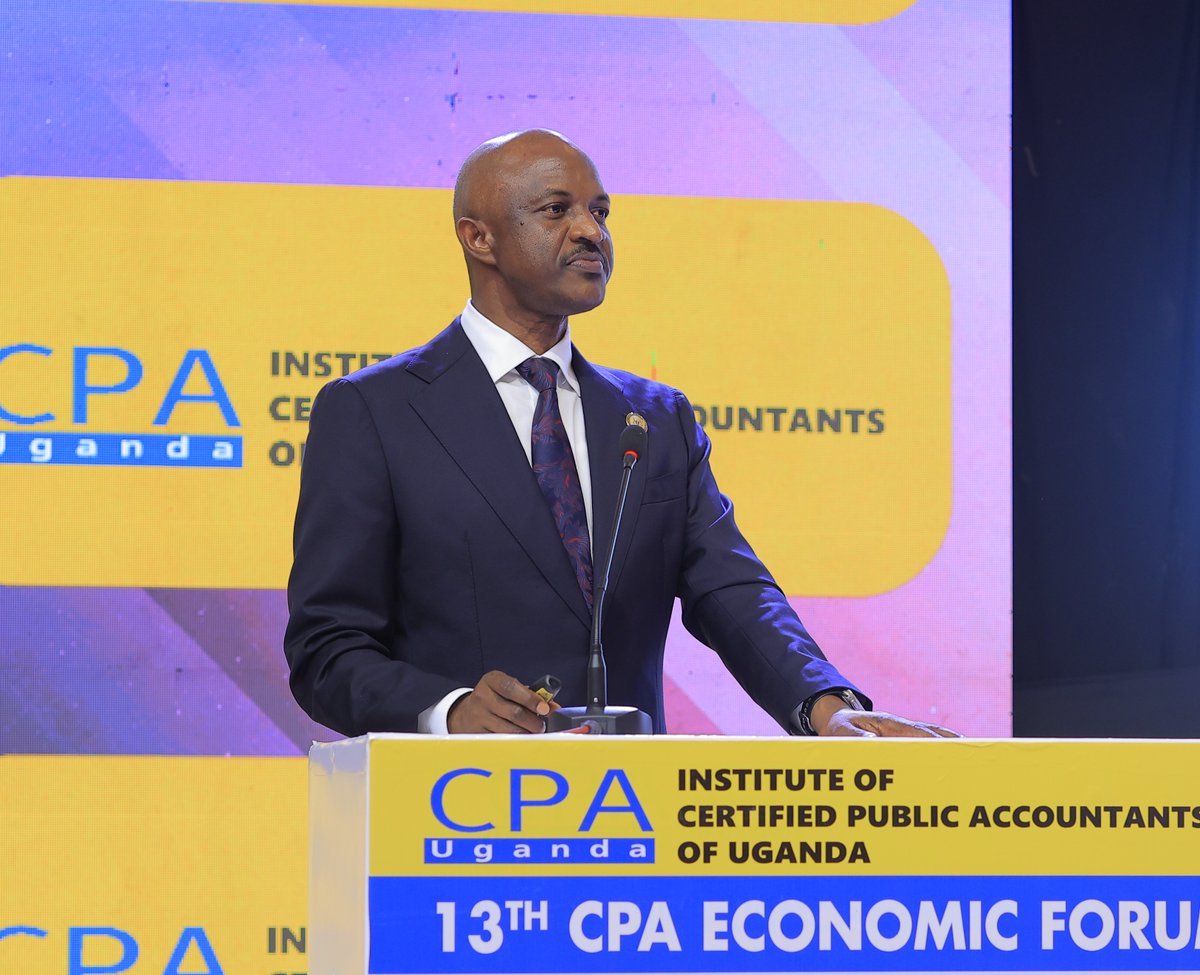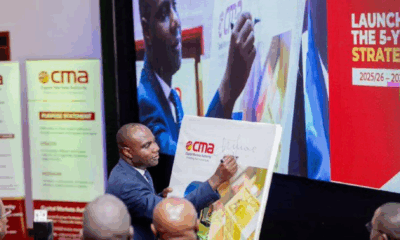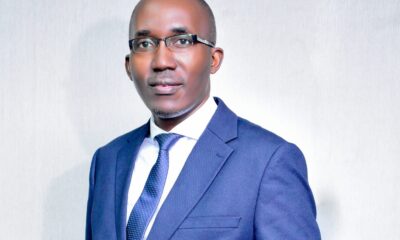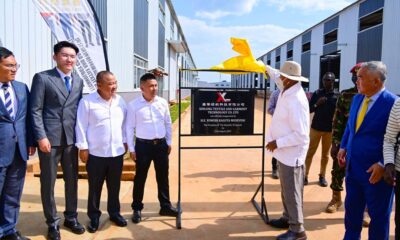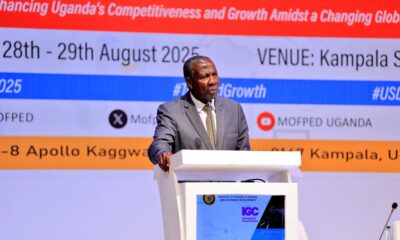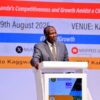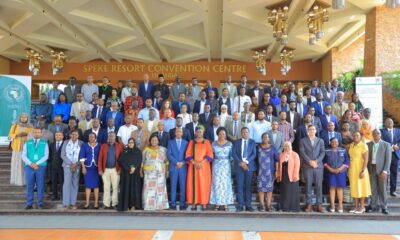Economy
Ggoobi Charts Path to $500 Billion Economy, Defends Urbanization and Calls for Affordable Housing at CPA Economic Forum
Uganda’s Permanent Secretary and Secretary to the Treasury (PSST), Ramathan Ggoobi, delivered a bold and far-reaching keynote address at the 13th CPA Economic Forum, laying out a vision for a structurally transformed Ugandan economy rooted in strategic urbanisation, affordable housing, infrastructure modernisation, and foreign direct investment.
Speaking to a room full of certified public accountants, economists, and policymakers, Ggoobi challenged long-held perceptions about rural-urban migration, describing it not as a problem but a powerful economic opportunity. “Nobody should tell you that rural-urban migration is a problem. It’s a good problem,” he stated. “People should get out of rural areas and into urban centres to increase productivity. But they should move organically, by getting better-paying jobs.”
Drawing parallels with China’s rapid poverty eradication, Ggoobi cited how 500 million people were lifted out of poverty in one generation, largely by moving from subsistence farming to industrial work. “In China, the quickest way out of poverty was to get money to buy a train ticket to the next town and work in a factory. That’s how they moved from farming rice to running machines,” he noted, urging Uganda to embrace urbanisation deliberately and strategically.
Ggoobi turned attention to Uganda’s severe housing deficit, noting that during the NDP III period, the country had an annual housing demand of 180,000 units, but supply was falling far short, leaving a 62% deficit. “That’s why you see a housing problem. People are demanding houses, and they are not there,” he said.
He decried the mismatch between available housing products and the income levels of average urban dwellers, 68% of whom earn less than UGX 1.1 million per month. “They can only afford houses around UGX 20 million. Anything above that is unaffordable. Some people call a UGX 200 million house affordable—maybe for CPAs—but not for a majority of Ugandans,” he said pointedly, calling on institutions like NSSF to rethink affordability and support technologies that enable low-cost construction.
On the broader economic front, Ggoobi projected confidence in Uganda’s trajectory, stating that the country has laid a firm foundation for double-digit economic growth, with a vision of reaching a $500 billion economy. “Uganda is bridging the infrastructure gap fast. Electricity is now clean, renewable, and being transmitted. Roads are linking production areas. We are investing $2.7 billion in the Standard Gauge Railway, and the contractor has already mobilised.”
He also highlighted rapid expansion in aviation infrastructure, with regional airports under development in Karamoja, Kabale, Hoima, and Kisoro, positioning Uganda for improved logistics and connectivity. Sport and cultural infrastructure are also gaining attention as engines of community development and national pride.
Addressing macroeconomic performance, Ggoobi applauded the Bank of Uganda for keeping inflation in check and maintaining the most stable currency in Africa over the past five years. “Some say the economy is growing, but they aren’t feeling it. That’s how economies grow. If everyone had too much money, you’d have inflation. A strong economy doesn’t mean everyone feels rich overnight.”
He defended government efforts like the Parish Development Model (PDM), asserting it has changed the face of rural economies by delivering funds to every village in Uganda. Responding to critics who claim beneficiaries misuse the funds, Ggoobi remarked with characteristic frankness, “Even if they drink it, it’s still economic activity. It creates a local multiplier. I’m not saying people should drink the money, but from a macroeconomic perspective, it’s not entirely bad.”
He humorously referenced economist Richard Tarlow, who argued that petty theft, while harmful to the individual, may not have macroeconomic consequences. “When someone steals your phone, you are the victim. But Uganda hasn’t lost anything. The thief might even buy airtime, creating multiplier effects,” he said, quickly adding, “But Tarlow warned—don’t encourage thieves. If they multiply, rent-seeking will rise and the economy suffers.”
In a call to action, Ggoobi urged accountants and economic professionals to work with the government to “clean up, team up, link up, green up, and scale up.” These five principles, he said, are the levers Uganda must pull to transform into a modern economy.
“Uganda has the momentum, the foundation, and the potential. If we act with purpose and unity, we will achieve the tenfold growth we seek. But if we don’t, we will miss this chance,” he concluded. The address was met with wide applause, a reflection of the urgency and clarity with which he had charted the nation’s economic aspirations.
Comments



